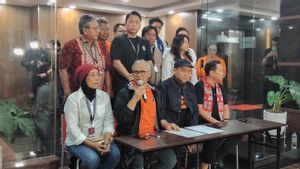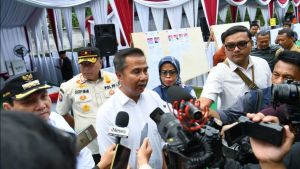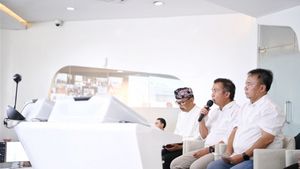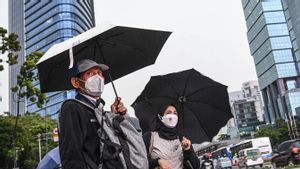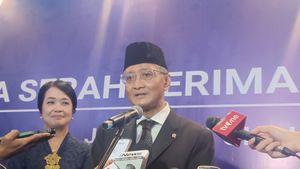JAKARTA - The COVID-19 pandemic has brought many countries experiencing contraction or negative economic growth, and has led to a recession because the contraction took place in two consecutive quarters. It also seems that Indonesia will experience this in the near future.
Even though in the second quarter of 2020 the country's economy could still be positive 2.97 percent, in the following quarter, it contracted by 5.32 percent. The same thing is also expected to happen in the third quarter of 2020, where Finance Minister Sri Mulyani predicts economic growth will be minus 2.1 percent.
The struggle to revive the economy is predicted to continue until next year. All parties, especially the government, are considered to be fast and precise in handling the COVID-19 pandemic.
Post-pandemic, the government must be able to map which sectors are still growing to support Indonesia's economy. This was stated by the economist and professor of the Faculty of Economics and Business (FEB), Gadjah Mada University (UGM), Mudrajad Kuncoro.
Mudrajad said that if you look back, currently what dominates Indonesia is the manufacturing industry where its contribution is around 20 percent for the Gross Domestic Product (GDP). Then, he said, followed by trade; hospitality and restaurant or tourism; as well as agriculture.
"The question in the future is if we want to talk about the structural transformation that is predicted to occur in 2045, or 100 years of Indonesian independence, we must clearly want to go to an industrial or service country," said Mudrajad at the 'Virtual 100 Economist Workshop', Tuesday. , 15th of September.
According to Mudrajad, post-pandemic structural transformation to boost the Indonesian economy through the determination of an economic focus roadmap towards a financial industry or trade service country, tourism is very important.
"Services in developed countries are finance and banking, but our services are trade in hotels and restaurants. Tourism is the most dominant. So we have to set a roadmap, where to take this country," he said.
However, he said, if the government chooses to develop Indonesia into a country that promotes industrial-based agriculture, there will be problems to be faced.
"The problem is, if we talk about industry and agriculture, it has serious obstacles at this time. If we look at the industrial dualism between big and small, there is still," he said.
Mudrajad said, if you reflect on the statements that the government always delivers and the obstacles it faces, the government tends to choose tourism with industry.
"Actually it must be simultaneous between the industrial and agricultural tourism development strategies. I recommend that there be an interlink between the three. So if we can develop industrial and agricultural agribusiness. So the linkage between these two sectors must be strengthened. Because of our industrial structural problems going forward and backward. weak, "he said.
According to him, the government must encourage agriculture-based and industrial-based industries that provide input to the agricultural sector. This is because the economic transformation from agriculture to industry is not followed by a transformation in the labor sector.
"So the point is to create added value because we have quite a lot of workforce, especially if we have a middle class which is getting higher, not to enter the middle income," he said.
The English, Chinese, Japanese, Arabic, and French versions are automatically generated by the AI. So there may still be inaccuracies in translating, please always see Indonesian as our main language. (system supported by DigitalSiber.id)



